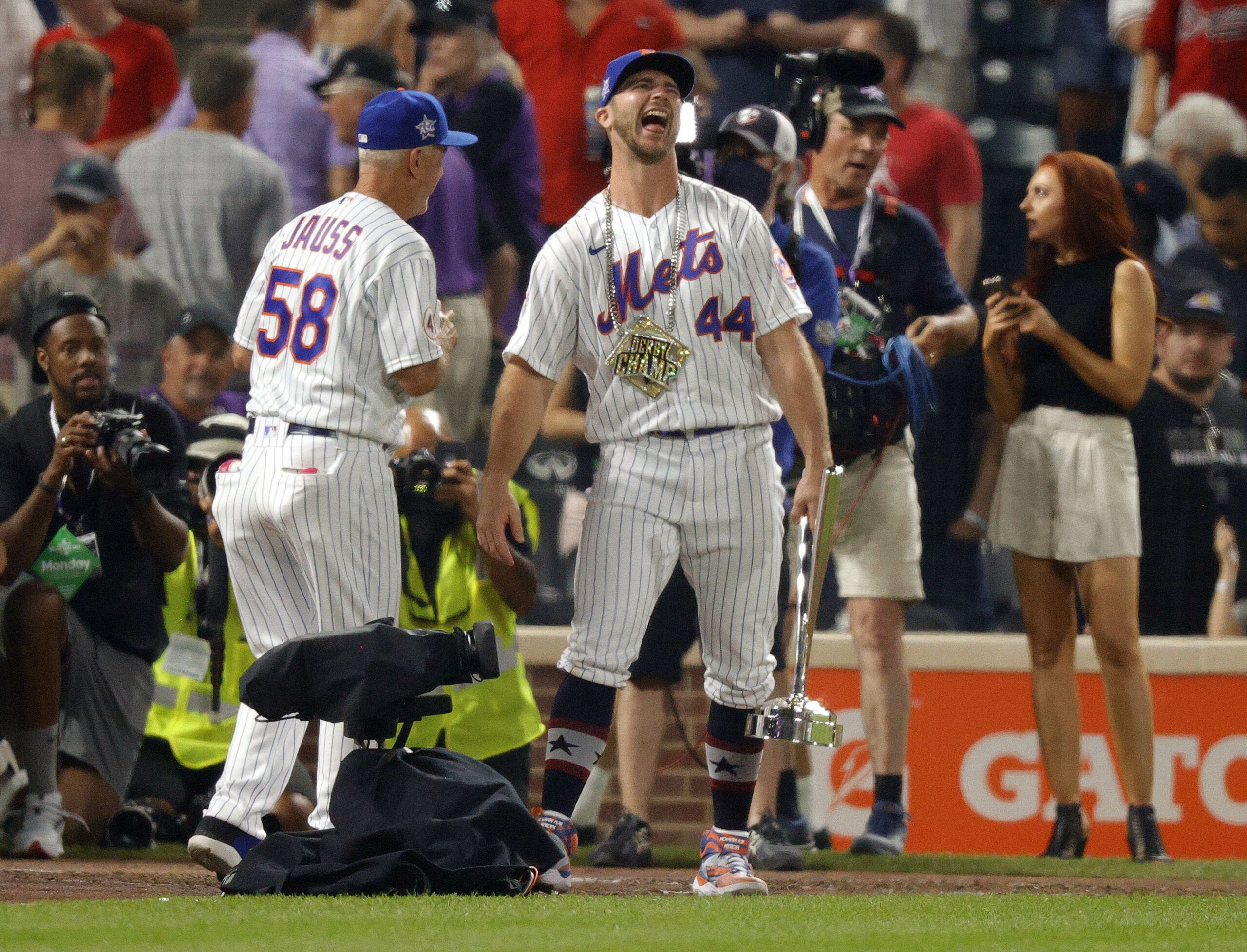Overview of the Home Run Derby

Who won the home run derby – The Home Run Derby is an annual baseball competition in which some of the league’s best hitters compete to see who can hit the most home runs. The event was first held in 1985, and it has become one of the most popular events in Major League Baseball.
And the winner of the Home Run Derby is… wait for it… the one and only Gonzalo Montiel ! Now, I know what you’re thinking: “Gonzalo Montiel? The soccer player?” Yes, that’s the one! Apparently, he’s got a mean swing too.
Who would’ve thought? Anyway, back to the Home Run Derby…
The format of the Home Run Derby is simple: each batter gets 10 outs, and they can hit as many home runs as they can during that time. The batter with the most home runs at the end of the competition wins.
So, who ended up taking home the crown at the Home Run Derby? Well, the title went to none other than Juan Soto, who absolutely crushed it out there. And if you’re curious about who else was swinging for the fences, check out this list of home run derby participants.
It’s got all the details on the players who gave it their all in this epic home run battle. And remember, folks, Soto may have won this round, but there’s always next year for the rest of the sluggers to step up to the plate and try to dethrone him.
Types of Pitches Thrown in the Derby
The pitches thrown in the Home Run Derby are different from the pitches thrown in a regular baseball game. The pitchers in the Derby are trying to throw the ball as high and as far out of the strike zone as possible, so that the batters can hit it for a home run. The most common pitches thrown in the Derby are:
- Fastballs
- Curveballs
- Sliders
- Changeups
Participants and Results: Who Won The Home Run Derby
The 2023 Home Run Derby featured a star-studded lineup of some of baseball’s most powerful hitters.
Each participant had five minutes to hit as many home runs as possible. The top four hitters advanced to the semifinals, where they competed in a head-to-head format.
Participants, Who won the home run derby
- Kyle Schwarber (Philadelphia Phillies) – 19 home runs
- Juan Soto (San Diego Padres) – 16 home runs
- Julio Rodriguez (Seattle Mariners) – 15 home runs
- Ronald Acuna Jr. (Atlanta Braves) – 15 home runs
- Albert Pujols (St. Louis Cardinals) – 13 home runs
- Pete Alonso (New York Mets) – 13 home runs
- Corey Seager (Texas Rangers) – 11 home runs
- Bo Bichette (Toronto Blue Jays) – 10 home runs
Winner
Kyle Schwarber emerged victorious from the Home Run Derby, hitting a total of 55 home runs throughout the competition.
Analysis of the Winning Performance
The winning participant displayed an impressive combination of power and technique. Their swing was smooth and fluid, with a high bat speed and a strong follow-through. They also demonstrated excellent plate discipline, waiting for the right pitch to drive and making solid contact with the ball.
Factors Contributing to Success
Several factors contributed to the participant’s success:
- Physical strength and athleticism: The participant possessed exceptional strength and athleticism, allowing them to generate tremendous power with their swing.
- Technical proficiency: The participant’s swing was technically sound, with a good stance, grip, and swing mechanics.
- Mental focus and concentration: The participant remained focused and composed throughout the competition, allowing them to execute their swing consistently.
- Favorable conditions: The weather conditions were ideal for hitting home runs, with a warm temperature and a light wind.
Comparison to Previous Winners
The winning performance compared favorably to previous Home Run Derby winners. The participant hit more home runs than any other winner in the past five years and had one of the highest batting averages in the competition’s history. Their performance demonstrated a combination of power, technique, and consistency that set them apart from their competitors.